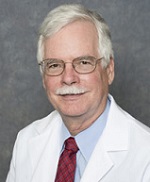Under the current model in the U.S. a cancer patient is prescribed drugs by their doctors and the financial consequences then play out over the course of the treatment. But in the midst of a growing national debate over drug prices, a coalition of cancer groups will provide patients with info ranking costs and effectiveness of different treatments so they can make decisions on what they are willing to pay for their own treatment.
 |
| NCCN CEO Dr. Robert Carlson |
For 20 years the National Comprehensive Cancer Network (NCCN) has offered info for doctors and patients the effectiveness and the side effects that can be expected from cancer drugs, Bloomberg reports. Beginning this week, the NCCN will add cost data to the mix. The additional data will not give specific drug prices but like its other data, will rank cost on a scale of 1 to 5. In addition to a drug's price, the rankings will be based on costs for monitoring a drug and treating its side effects, as well as the fees required by hospital or clinic that would administer it.
Up until now, there has been no info allowing healthcare providers to make that connection, a fact that has confounded healthcare providers, Dr. Robert Carlson, CEO of the NCCN told Bloomberg. NCCN is made up of more than two dozen hospitals, including well known cancer programs at MD Anderson, Sloan Kettering and the Mayo Clinic.
"Our goal is to get the conversation started between the patient and the health-care team so they understand the trade-offs," Carlson said. "If as an artifact of that we were to make healthcare more affordable, that would be wonderful."
A spokeswoman for PhRMA, the industry's largest lobbying force, told Bloomberg the association has always supported the "use of sound, patient-centered tools to help guide decisions about which treatment options are best for the individual patient."
There has been growing concern over the rising costs of prescription drugs in general, from generics to cancer meds, particularly in the U.S. where there the system has few government curbs on what drugmakers can charge and pretty much requires insurers to cover a drug, regardless of its costs or benefits. That debate is now spilling into the national election, as candidates Sen. Bernie Sanders and Hillary Clinton have laid out plans for controlling rising drug costs.
Oncologists have been front and center in the debate as new targeted cancer drugs have hit the market, often with very high prices at a time when patients' out-of-pocket costs also are rising. Some doctors have taken to simply avoiding new meds if they don't believe they offer enough additional benefit compared to their costs. Doctors talking with Reuters recently pointed to meds such as Eli Lilly's ($LLY) Cyramza. It competes in colon cancer with Sanofi's ($SNY) Zaltrap and Roche's ($RHHBY) Avastin but runs about twice the cost of Avastin, a drug that itself only adds about 1.4 months to the life expectancy of a colon cancer patient over conventional chemotherapy.
The most public display of cancer doctors' resistance to rising prices was in 2012 when doctors at Memorial Sloan Kettering announced in The New York Times that because of its cost and limited benefit compared to existing drugs, their hospital wouldn't be using Sanofi's Zaltrap. The drugmaker maker responded by quickly discounting the price by about half.
While the new NCCN guidelines are not expected to have that kind of immediate impact on cancer drug prices, experts think it will add to the growing pressure on drugmakers who might then be more restrained when pricing their next meds. Express Scripts ($ESRX) Chief Medical Officer Steve Miller, who led a campaign to fight the high prices of new hepatitis C treatments, thinks getting consumers into the discussion of drug prices is essential. According to Bloomberg, Miller at a conference last week said, "It is the patient that has the power. They are the ones Congress will listen to. We have to activate the patient groups if we are going to get to the fair price."
- read the Bloomberg story
Special Reports: Top 10 best-selling cancer drugs of 2013 | Top 10 most expensive drugs of 2013